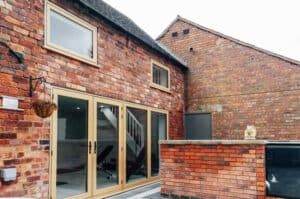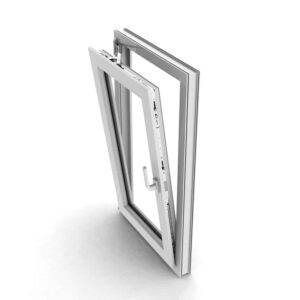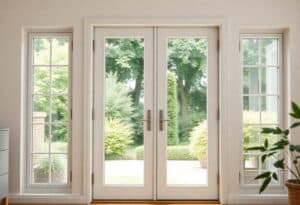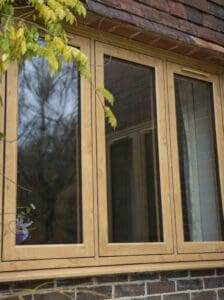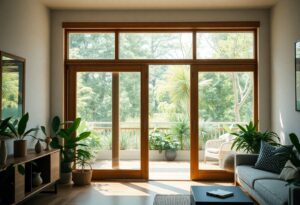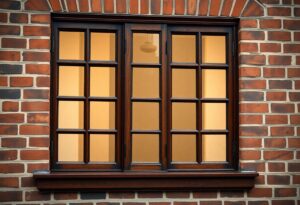There’s a significant difference between acoustic windows and traditional windows when it comes to sound insulation and overall performance. If you live in a noisy area, upgrading to acoustic windows can substantially reduce unwanted noise, enhancing your comfort. In this guide, you will discover the key benefits and downsides of each option, helping you make an informed decision. For additional insights on noise reduction and the Comparing dB rating – of roof windows! (and opinions on …, explore industry perspectives.
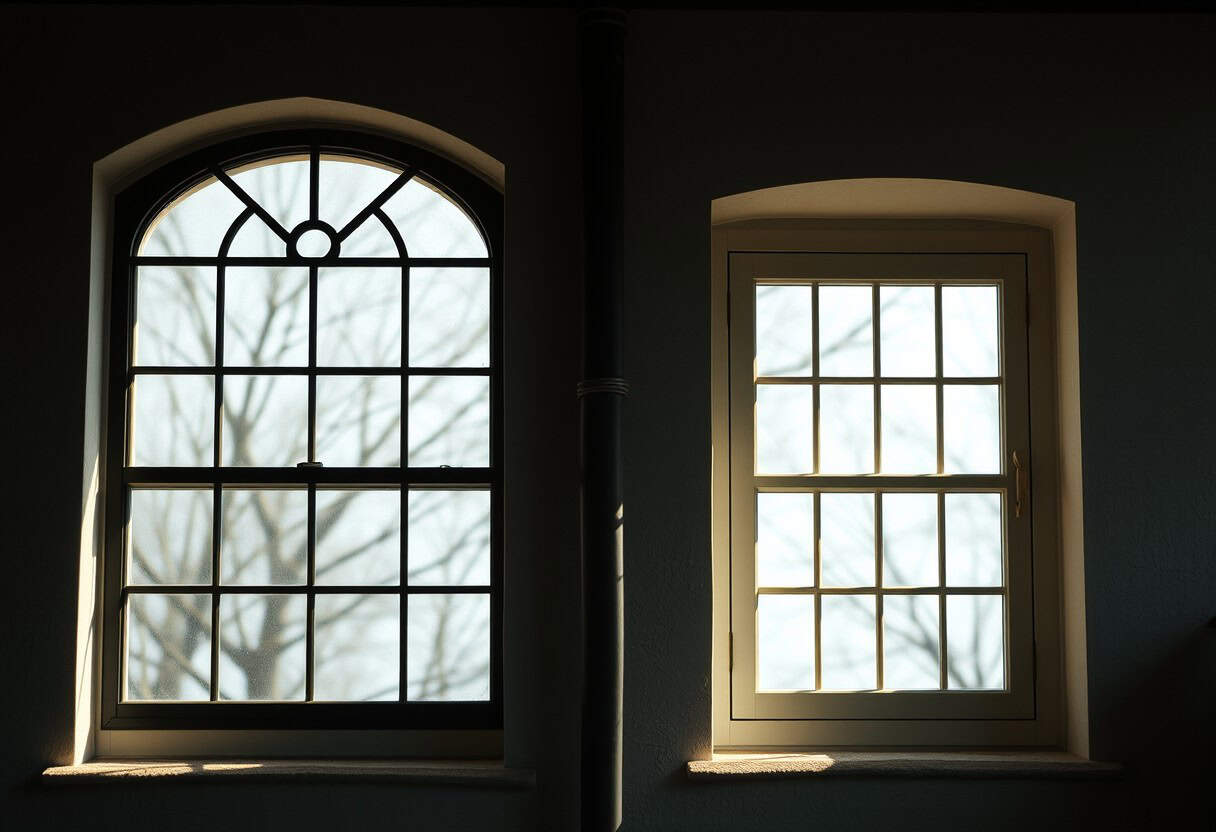
Types of Windows
Before choosing between acoustic and traditional windows, it’s necessary to understand the different types available. Here’s a breakdown of various window types:
| Single Glazed | Basic window type with one layer of glass. |
| Double Glazed | Two layers of glass with space in between for insulation. |
| Triple Glazed | Three layers providing even better insulation and soundproofing. |
| Acoustic Glass | Designed to minimise sound transmission. |
| Casement Windows | Open outward, providing excellent ventilation. |
Assume that you are contemplating the best option for your home setup.
Acoustic Windows
Windows equipped with acoustic technology are specially designed to reduce outside noise, making your living space more peaceful. When opting for acoustic windows, you must consider their sound insulation properties as they are a significant factor in your overall comfort. (Your choice will greatly impact your home’s ambiance.)
Traditional Windows
Assuming you are looking for more classic options, traditional windows often consist of single or double glazing, offering standard insulation and aesthetic appeal. These windows may not provide the same level of soundproofing as their acoustic counterparts, which may be a significant factor in noisy environments. (Choosing the right window style affects both aesthetic and functional aspects of your home.)
This option provides a more aesthetically pleasing look and often comes in various styles, but be aware that their insulation and soundproofing capabilities can vary. Investing in the appropriate glazing can make a difference in your comfort and energy efficiency. (Selecting the best type for your needs is a key consideration.)
Factors to Consider
Now, when deciding between acoustic windows and traditional windows, you must consider several factors:
- Your specific soundproofing needs
- Your aesthetic preferences
- Budget constraints
- Energy efficiency requirements
Perceiving these factors will help you make an informed choice tailored to your unique circumstances.
Soundproofing Needs
To assess your soundproofing needs, evaluate the noise levels in your environment. If you live in a bustling urban area or near a busy road, acoustic windows may be the better option to significantly reduce unwanted noise. This consideration directly impacts your comfort and wellbeing in your living space.
Aesthetic Preferences
With architectural style and personal taste in mind, deciding on window aesthetics is important. Consider how acoustic windows fit with your home’s overall style. (Your choice will influence both the interior and exterior appeal of your property.)
This choice impacts not only the appearance of your home but also its value in the long term. Acoustic windows can be less versatile in design compared to traditional options, which may offer a wider range of styles. It’s vital to weigh both the practical benefits of noise reduction against how the windows will harmonise with your home’s aesthetics.
Pros and Cons
Assuming you’re weighing the benefits and drawbacks of acoustic and traditional windows, it’s necessary to evaluate their features comprehensively. Below, you’ll find a breakdown of their pros and cons.
Pros and Cons
| Acoustic Windows | Traditional Windows |
|---|---|
| Excellent sound insulation | Cost-effective options available |
| Enhanced energy efficiency | Wide variety of styles and designs |
| Increased property value | Easy to install and replace |
| Reduces external noise pollution | Good ventilation |
| Durable materials | Often lighter than acoustic windows |
| Higher initial investment | Less effective sound insulation |
| May be heavier to install | Less energy efficiency |
| Requires specialised installation | Requires regular maintenance |
| Limited design options | Can compromise on sound management |
| Longer lead times for custom models | More affordable for budget-conscious homeowners |
Advantages of Acoustic Windows
Windows designed for acoustic performance provide remarkable noise reduction, making them ideal for urban environments or noisy areas. They offer superior sound insulation, enhancing your comfort at home while potentially increasing your property’s value. As you consider this option, you’ll appreciate the added peace and quiet they offer.
Disadvantages of Acoustic Windows
With acoustic windows, you may face a higher initial investment compared to traditional options. Their weight can complicate installation, requiring skilled professionals. It’s also important to note that custom designs may extend lead times, making planning ahead vital (this is a significant factor for your home improvement plans).
Cons of acoustic windows include the necessity for specialised installation, potentially raising labour costs. Furthermore, your selection of designs may be limited, which could restrict aesthetic choices in your home (consider how much value you place on design in your decision).
Advantages of Traditional Windows
Advantages of traditional windows lie in their cost-effectiveness and wide design variety. You can easily find styles that suit your home’s architecture, which makes them an appealing choice for many homeowners (you’ll want to balance aesthetics with functionality).
A notable benefit is their ease of installation, which typically reduces labour costs. You’ll also find that traditional windows offer good ventilation, allowing for a refreshing flow of air, which is necessary for a pleasant living environment (consider how ventilation impacts your comfort when making a choice).
Disadvantages of Traditional Windows
One downside of traditional windows is their tendency to provide less effective sound insulation, which may leave you exposed to outdoor noise. They also generally offer lower energy efficiency compared to more modern alternatives, which can lead to higher heating and cooling bills (you should think about long-term costs versus upfront savings).
More extensive regular maintenance may be required to ensure they function optimally and maintain their aesthetic appeal. Additionally, you could find that traditional windows compromise on sound management, making them less suitable for particularly noisy areas (evaluate your noise environment before deciding).
Tips for Choosing the Right Window
Your decision in selecting the right window can significantly impact your home’s energy efficiency, noise reduction, and overall aesthetics. Consider the following factors:
- Assess your environment for noise levels and climate.
- Evaluate your budget and potential long-term savings.
- Research the styles and materials available.
Knowing the specific needs of your home will guide you in making the best choice.
Assessing Your Environment
Your local environment plays a significant role in determining the type of windows best suited for your home. Take time to evaluate factors such as surrounding noise, weather patterns, and natural light levels. These considerations will help you ascertain whether you require acoustic windows for sound insulation or opt for traditional windows that offer different advantages.
Budget Considerations
Clearly, your budget is a significant factor in choosing windows. Quality options in acoustic or traditional windows can range vastly in price (prioritising quality over cost will ensure you have a lasting solution). Therefore, it’s imperative to balance between affordability and the features you desire, such as energy efficiency or design advantages.
A well-planned budget not only helps in identifying potential cost savings over the lifespan of your windows but also ensures you avoid overspending on unnecessary features. Recognising the balance between investment and functionality will serve you well (investing in higher quality can lead to substantial returns in the form of savings and comfort). Hold this perspective when navigating your window options.
Step-by-Step Guide to Installation
Once again, installing acoustic windows requires careful planning and execution to ensure optimal performance. Follow this systematic approach to achieve the best results:
| Step | Description |
| 1 | Assess the current window type and its condition. |
| 2 | Gather all necessary tools and materials. |
| 3 | Prepare the installation area by removing any obstructions. |
| 4 | Carefully remove the existing windows. |
| 5 | Install the new acoustic windows with attention to sealing. |
| 6 | Finish with insulation and trim for a polished look. |
Preparing for Installation
Now, preparation for the installation of acoustic windows involves assessing your current window setup and ensuring you have the necessary materials and tools at hand. Understanding the type of existing windows you have and selecting the right acoustic windows for your needs is crucial (choosing the right product can significantly impact sound reduction).
Installation Process
Any successful installation of acoustic windows hinges on an efficient process. Begin by removing the old windows and ensuring the frame is intact, followed by fitting the new windows snugly and securing them properly.
Plus, during the installation process, ensure you handle the windows with care to avoid damage. Apply weather stripping and relevant sealants to enhance insulation and soundproofing. It’s also wise to double-check for any gaps; even the smallest openings can undermine the window’s acoustic capabilities. Your attention to these details can mean the difference between a productive investment and ongoing noise disruptions.
Maintenance and Care
Keep in mind that regular maintenance is imperative for ensuring the longevity of both acoustic and traditional windows. You should routinely inspect for any signs of wear or damage, as this can significantly affect their performance over time. Ultimately, investing in proper care can save you from costly repairs in the long run.
Upkeep of Acoustic Windows
Care for your acoustic windows by gently cleaning the glass with a soft cloth and a mild detergent. Ensure you check the seals for any air leaks or deterioration, as these can impact the soundproofing qualities of your windows. (Selecting the right cleaning materials is a significant factor here.)
Upkeep of Traditional Windows
Windows require a bit more attention to maintain their appearance and functionality. Regularly clean the glass and check for any moisture build-up, which can lead to mould and decay. Ensure the frames are treated and painted as necessary to prevent rot and insect infestations. Performing these tasks consistently will enhance not only their lifespan but also protect your home’s aesthetic appeal.
Summing up
Conclusively, as you weigh the pros and cons of acoustic windows versus traditional windows, it’s vital to consider your specific needs, preferences, and environment. Acoustic windows excel in sound reduction and energy efficiency, providing a quieter and more comfortable space, while traditional windows may offer aesthetic appeal and cost-effectiveness. By evaluating these factors, you can make an informed choice that enhances your living quality and meets your requirements effectively.
FAQ
Q: What are acoustic windows?
A: Acoustic windows are specially designed windows that reduce noise pollution from external sources. They typically consist of multiple layers of glass with a specific air gap between them, which helps to absorb sound waves and significantly decrease the level of noise that enters a building.
Q: How do traditional windows differ from acoustic windows?
A: Traditional windows are usually single or double glazed and do not have the specialised design or materials that acoustic windows feature. They may not effectively dampen noise, allowing external sounds to penetrate more readily into living spaces, while acoustic windows are constructed specifically to minimise sound transmission.
Q: What are the benefits of installing acoustic windows?
A: The primary benefits of acoustic windows include improved sound insulation, enhanced comfort in noisy environments, increased property value, and potential energy savings. Moreover, less noise pollution can lead to better mental well-being and overall quality of life, particularly in urban areas or near busy roads.
Q: Can acoustic windows help with energy efficiency?
A: Yes, acoustic windows can contribute to energy efficiency. Their multi-layer design not only insulates against sound but also helps to retain heat within a building. This can lead to lower heating costs during colder months and a reduction in overall energy consumption.
Q: Are acoustic windows more expensive than traditional windows?
A: Acoustic windows generally have a higher initial cost compared to traditional windows due to their specialised materials and installation requirements. However, the long-term benefits—such as reduced energy bills and better noise control—can offset these upfront costs over time.
Q: How do I determine if I need acoustic windows in my home?
A: Consider installing acoustic windows if you live in a particularly noisy area, such as near busy roads, railways, or airports. If you find that outside noise disrupts your daily life or sleep patterns, investing in acoustic windows may significantly improve your living conditions.
Q: How are acoustic windows installed compared to traditional windows?
A: The installation of acoustic windows follows a similar process to that of traditional windows; however, attention to detail is critical to ensure maximum sound insulation. Proper sealing and fitting are important during installation to prevent any gaps that could allow sound to enter, which may require specialised techniques and expertise. Therefore, it is advisable to hire professionals experienced in acoustic window installation for optimal results.

